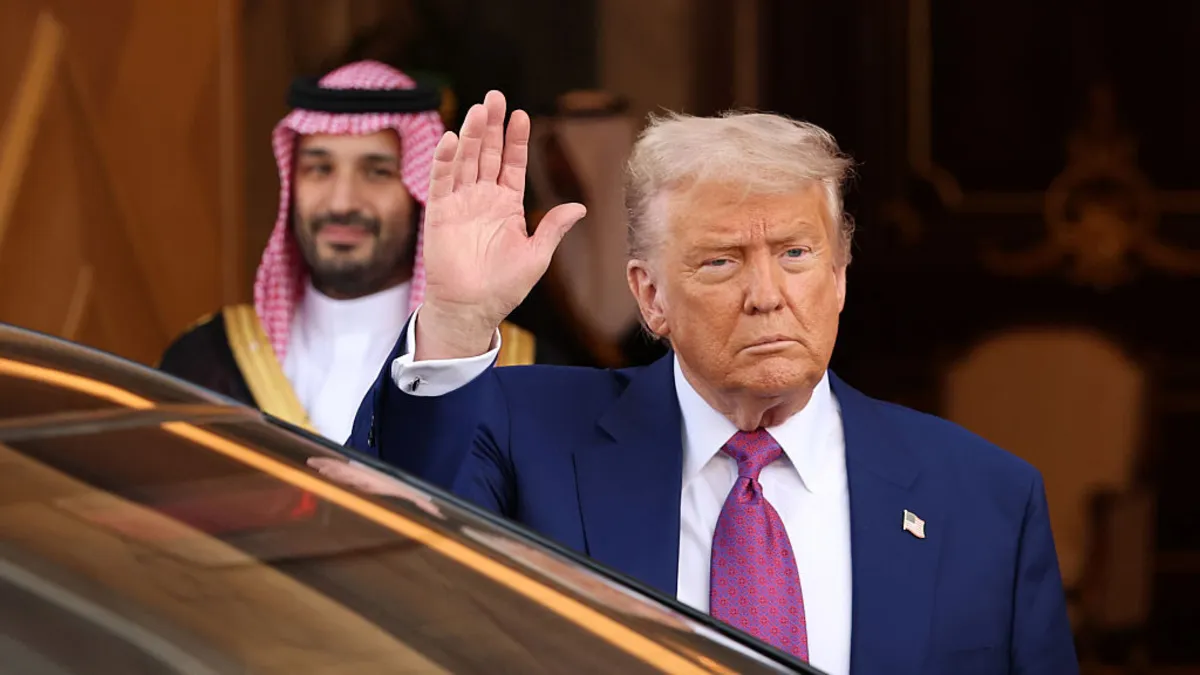
In a significant development, the White House has announced what it describes as the “largest defense sales agreement in history.” This monumental series of deals with Saudi Arabia encompasses “state-of-the-art” warfighting equipment and training, valued at nearly $142 billion. Although specific details of the agreements were not disclosed in the official statement, the White House outlined five major categories that these deals will cover.
The comprehensive agreement package will primarily focus on:
Air Force and Space Air and Missile Defense Maritime Security Land Forces Modernization and Border Security Information and Communication Systems UpgradesAdditionally, the package includes training services for the Royal Saudi Armed Forces, which encompasses enhancements to Saudi service academies and military medical services, as highlighted in the White House statement.
According to a fact sheet released by the White House, the defense relationship between the U.S. and Saudi Arabia is "stronger than ever" under President Donald Trump’s leadership. This latest package is touted as a clear demonstration of the U.S.'s commitment to fortifying its partnership with the Kingdom. The fact sheet also notes a total investment commitment of $600 billion by Saudi Arabia into various U.S. industries.
When pressed for more details about specific deals, the State Department redirected inquiries to the White House, which has yet to respond. However, the mention of “sales that we intend to complete” implies that the arrangements are not entirely finalized. It's worth noting that during Trump’s initial term, a substantial defense deal with Saudi Arabia was announced, although it primarily consisted of non-binding agreements and previously planned deals.
Experts are weighing in on the implications of these defense deals. David Des Roches, an associate professor at the Near East South Asia Center for Security Studies, expressed his anticipation that the defense agreements would focus on recapitalizing Saudi air defenses, particularly the Patriot air defense systems. He emphasized the need for additional missiles and new launchers, along with potential upgrades to the Patriot radar—an objective that has long been on Saudi Arabia’s agenda.
While President Trump was expected to announce these defense deals during his Middle East trip, uncertainties remain regarding specific military platforms, particularly the F-35 Joint Strike Fighter. This advanced aircraft has reportedly been sought after by both Saudi Arabia and the United Arab Emirates. However, the White House fact sheet does not mention the F-35, raising questions about its inclusion in the current agreements.
Ali Bakir, a professor at Qatar University and a non-resident senior fellow at the Atlantic Council’s Scowcroft Middle East Security Initiative, noted that any potential F-35 deals could face significant challenges. He indicated that the U.S. is likely to be cautious about exposing the aircraft’s technology to foreign powers, especially considering UAE’s reliance on Chinese 5G systems.
Overall, Bakir suggested that while defense deals are expected during Trump’s visit, they may not change the long-standing perception in the Gulf regarding the U.S.’s credibility as a security guarantor. “We can expect an emphasis on increased defense contracts and defense-oriented relations during the visit,” he stated, highlighting the ongoing priority of military cooperation between the U.S. and Gulf states.
As developments unfold, the focus on enhancing military capabilities in the region underscores the strategic importance of U.S.-Saudi relations in addressing security challenges in the Middle East.